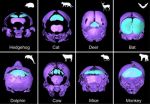(Press-News.org) People who give positive encouragement and constructive criticism could be wasting their breath according to the latest research from a psychology expert at Queen Mary, University of London.
The study, published in the journal Frontiers in Neuroscience, found that when people received either positive or negative feedback about their performance on complex decision-making tasks, it made their decision making worse.
Study author Dr Magda Osman explained: "The kind of task people had to perform was difficult and demanding. So, when people received positive or negative feedback, it overloaded them with too much information and distracted them from making a good decision.
"We found that people's performance got worse when they had to make sense of the feedback they were given while also performing the main task.
"The role of feedback is overemphasised. People typically think that any form of feedback should improve performance in many tasks, and the more frequently it is given the better performance will be.
"However what needs to be considered is how complex the task is in the first place, because this will determine how much feedback will actually interfere with rather than facilitate performance."
The study involved about 100 people who were given the task of choosing how best to either predict or control the state of health of a baby, revealing that feedback can play a negative role in a particularly complex decision-making scenario.
However Dr Osman said this type of finding can be generalised and applied to a variety of other complex situations.
"The introduction of smart energy meters into the home to monitor the amount of energy you're consuming seems like a nice 'green' idea to help you consume less energy, but the complexity of the feedback people receive may not necessarily help them to reduce their energy consumption," she said.
"If the energy meter keeps changing and people are unable to track what appliances are on, how could they possibly learn how to lower their energy consumption?
"People are already being bombarded with high levels of complex information with the influx of new technology into our lives and the increasing reliance on information from the smorgasbord of apps we have at our fingertips. It is bound to take its toll on our ability to make good choices in difficult decision-making situations."
Dr Osman warns that people in management positions need to be aware of the type of feedback they are providing to their staff.
"We have shown that feedback really doesn't help people who are making complex decisions. People in management positions need to give their staff more time to analyse and evaluate things in detail when dealing with difficult situations so they can come up with solutions without any distractions in order to get the best out of them."
Dr Osman added that her findings disagree with Nobel prize winner Daniel Kahneman who writes in his popular book 'Thinking, Fast and Slow' that feedback is good, and is also at odds with the authors Richard Thaler and Cass Sunstein whose book 'Nudge: Improving Decisions about Health, Wealth and Happiness' was named Best Book of the Year by The Economist.
"My work shows that feedback alone is not enough to ensure success in decision making. I may not be popular for my research into the role of feedback in complex decision-making tasks but I hope it will make some people think twice about whether they could potentially hinder people's performance with the feedback they provide," she said.
INFORMATION: END
The mammalian skull, including that of people, is composed of about 20 bones. Fish, reptile and bird skulls, however, have considerably more. After all, when mammals evolved from reptile-like vertebrates 320 million years ago, the skull's structure became simplified during its development and the number of skull bones decreased.
Some bones were lost in the lineage leading to mammals in the course of evolution, especially a number of skull roof bones. The skull's interparietal, which is one of the skull roof bones, particularly puzzled researchers: on the one hand, it ...
They're sleek. They're fast. They're powerful. And, they are deafening. Furthermore, those Top Gun military jets need to be up in the air in the wee hours – over land – to simulate their landings on aircraft carriers. But innovations out of the University of Cincinnati's Gas Dynamics and Propulsion Laboratory are showing promise in reducing the intense noise of these supersonic jets without impacting their power. It's research that can help neighborhoods slumber a little more soundly, keep their windows rattling a little less loudly and also protect the hearing of military ...
University of Cincinnati research – from noise reduction in sophisticated military jets to quieter car rides – will be presented at INTER-NOISE 2012, the 41st International Congress and Exposition on Noise Control Engineering, to be held Aug. 19-22 in New York City. UC is among only a few universities with a specific focus on vehicle noise control.
The UC research to be presented at INTER-NOISE:
UC innovations to reduce the noise of the nation's most sophisticated military aircraft. Jeff Kastner, research assistant professor in the UC College of Engineering and Applied ...
All noise is not necessarily equal – especially when it comes to sound minimization in automobiles.
For instance, automakers have long used sound-absorbing materials (passive control) in the design of cars in order to minimize engine noise and the "routine" noise of tires traveling on smooth pavement at a consistent speed. However, a means to minimize sudden, unexpected noises – like those from an encounter with potholes, bumps or other roadway pavement obstacles – has been more problematic.
A significant step in countering such unexpected roadway noises is the development ...
Until recent decades the Atlantic Rainforest covered a large area of today's Brazil from Amazonas to present-day Argentina. In the 1970s, after years of deforestation, this rain forest was almost completely destroyed, mainly replaced by cattle pastures. This study reveals an unexpected aspect of deforestation. Thorsten Dittmar's team and colleagues from Brazil and the USA show that the common practice of slash and burn left huge amounts of charcoal in the soil. This charcoal is washed out by rainfalls and transported by rivers into the Atlantic Ocean. The soluble fraction ...
WASHINGTON – Girls with attention deficit hyperactivity disorder are significantly more likely to attempt suicide or injure themselves as young adults than girls who do not have ADHD, according to research published by the American Psychological Association.
Young women diagnosed with attention deficit hyperactivity disorder as girls, particularly the type with early signs of impulsivity, were three to four times more likely to attempt suicide and two to three times more likely to report injuring themselves than comparable young women in a control group, according to ...
Current drug therapy for patients with HIV is unable to control the complete replication of the virus in the brain. The drugs therefore do not have any effect against the complications associated with neurocognitive impairment in patients with HIV. New research by Joseph Steiner and colleagues from Johns Hopkins University has discovered that a group of plant polyphenols known as catechins, which naturally occur in green tea and the seed of the cacao tree, may help in the prevention of these neurological complications. Their work is published online in Springer's Journal ...
Researchers in Leuven (VIB/KU Leuven) have confirmed their hypothesis that normalizing blood vessels by blocking oxygen sensor PHD2 would make chemotherapy more effective. They also demonstrated for the first time that this strategy would reduce the harmful side effects of chemotherapy on healthy organs.
Limited success of chemotherapy
The effectiveness of chemotherapy is first and foremost limited by the difficulties of delivering the anticancer drugs to the actual tumor. Tumors are characterized by abnormally shaped blood vessels – they are irregular in shape, have ...
TEMPE, Ariz. – Earthquakes are among the most destructive and common of geologic phenomena. Several million earthquakes are estimated to occur worldwide each year (the vast majority are too small to feel, but their motions can be measured by arrays of seismometers). Historically, most of Arizona has experienced low levels of recorded seismicity, with infrequent moderate and large earthquakes in the state. Comprehensive analyses of seismicity within Arizona have not been previously possible due to a lack of seismic stations in most regions, contributing to the perception ...
Experts agree that, more than ever before, modern wars will be fought in the cyber zone, targeting an enemy's communications technology to cause untold damage. Now a Tel Aviv University researcher is suggesting that the same tactics should be employed in the battle against one of the body's deadliest enemies — cancer.
In an article published in Trends in Microbiology, Prof. Eshel Ben-Jacob of TAU's School of Physics and Astronomy and Prof. Herbert Levine of Rice University, long-time bacteria researchers, and Prof. Donald Coffey of Johns Hopkins University, a renowned ...




